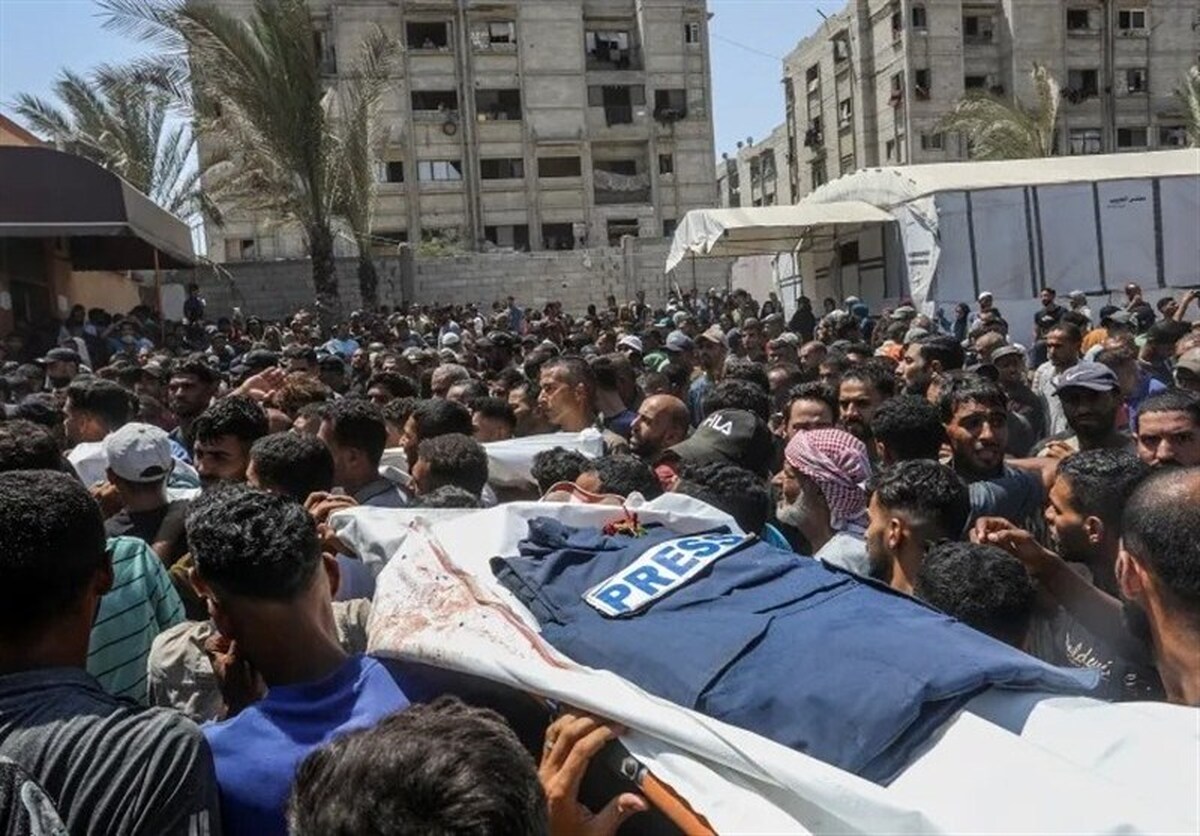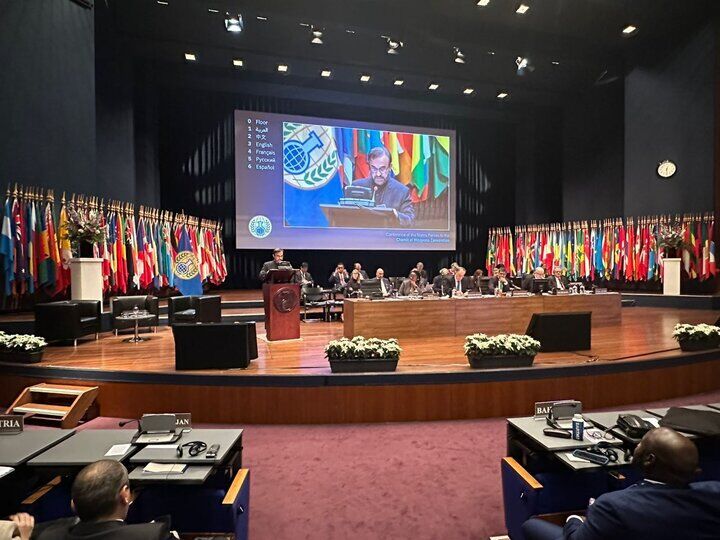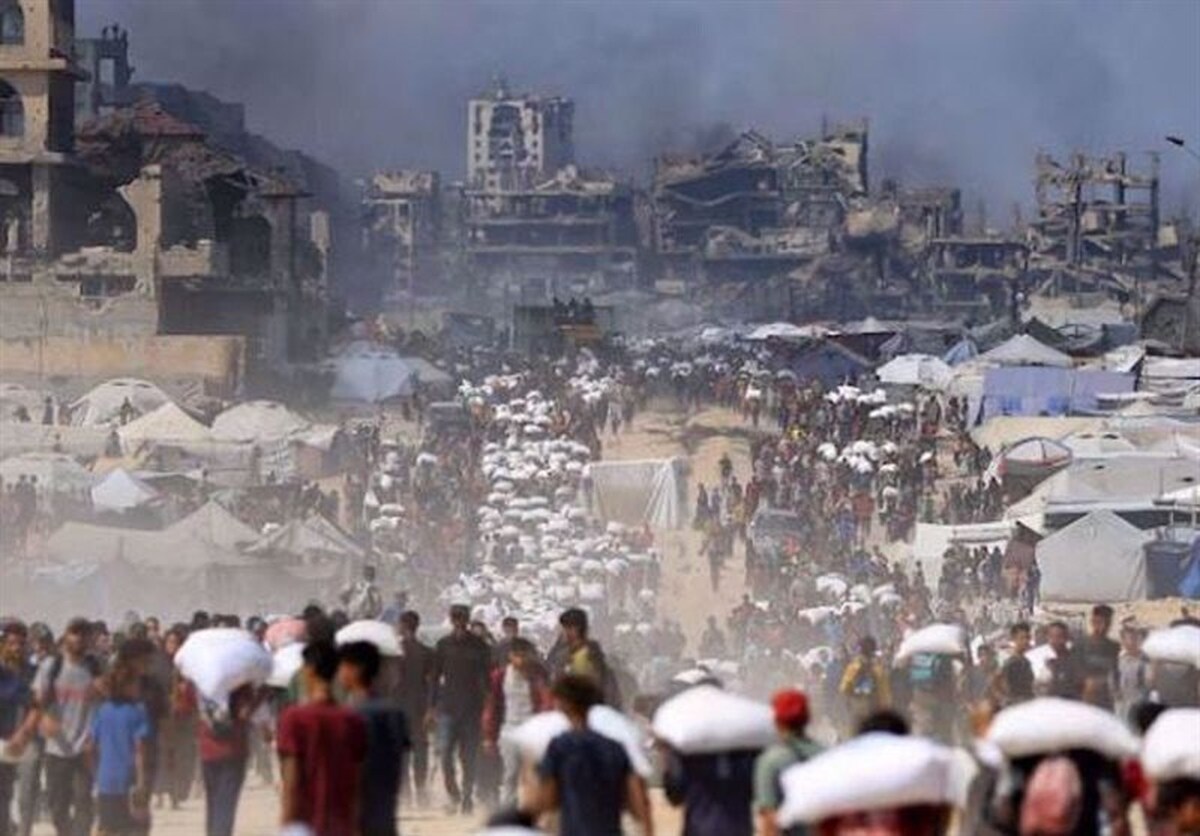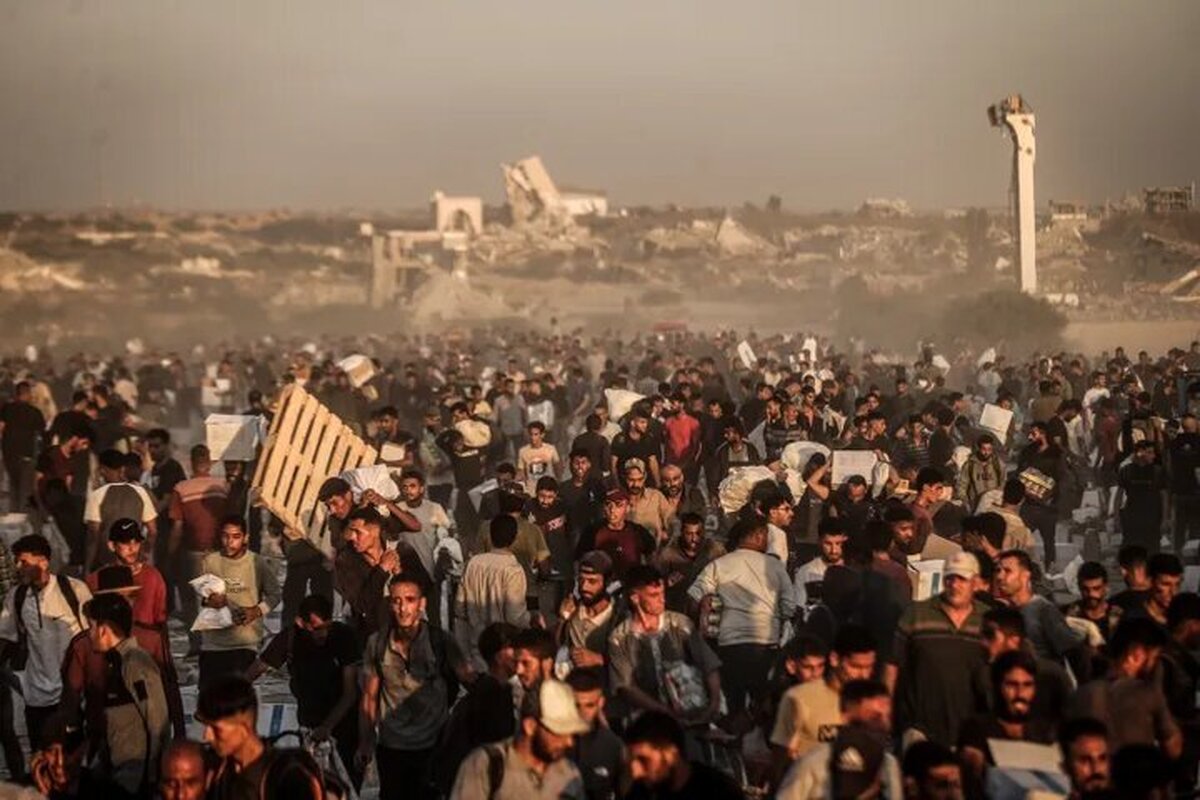
Iran urges probe into Israel’s alleged use of chemical weapon

Iran has called on the Organization for the Prohibition of Chemical Weapons (OPCW) to investigate reports suggesting that the Israeli regime has used illegal chemical weapons during its recent aggression against Gaza.
Addressing OPCW’s 28th session of the Conference of the States Parties on Monday, Deputy Iranian Foreign Minister for Legal and International Affairs Reza Najafi said that the Organization should launch a probe into reports showing that the Israeli regime is preparing to use nerve agents in tunnels run by Palestinian resistance forces in Gaza.
Najafi also referred to an Israeli minister’s remarks suggesting that the regime should use nuclear bombs against the civilian population in Gaza, calling it proof of the fact that the Zionist regime of Israel possesses dangerous mass killing weapons that could pose a major threat to peace and security in the Middle East.
In his address, the diplomat also touched upon other key issues related to chemical weapons in Syria and victims of such weapons in Iran.
Following is the full text of Najafi’s address to the OPWC session in The Hague, in the Netherlands:
In the Name of God, the Most Compassionate, the Most Merciful
Mr. Chairperson,
It is indeed a pleasure to see Your Excellency, Ambassador Suljuk Mustansar Tarar, presiding over this important Conference. Assuring you of my delegation’s full support and cooperation, I am confident that your professional diplomatic skills and able leadership will steer this Conference towards a successful conclusion.
My delegation associates itself with the statement to be delivered by Azerbaijan, on behalf of the Non-Aligned Movement and China.
I would also like to appreciate Director General and the Secretariat for their efforts.
Mr. Chairperson, Mr. Director-General, Distinguished delegates,
Concurrent with our meeting here, the innocent people of Palestine are under uninterrupted brutal and inhumane invasion. In addition to the use of chemical effects of phosphorous bombs in populated area, there are reports about preparation for the possible use of chemical weapons, particularly nerve agents in tunnels that needs serious attention. It has now been more than eight weeks that the Israeli occupying army are ruthlessly killing women and children and bombarding civilian objects particularly homes, hospitals, schools, masques, churches, refugee camps and critical infrastructures in Gaza Strip.
To date, more than 15,000 Palestinian civilians have been killed only in Gaza. Yet, over 6,000 are missing and more than 36,000 are wounded. Over 70 percent of those killed, missing or wounded are women and children.
These figures as well as the horrifying reports and heart-breaking images of this barbaric invasion, once again reveal, clearly and undeniably, the very murderous nature of the Israeli regime that has WMDs, including chemical weapons in its stockpiles too.
During the past eight weeks, the Israeli regime has committed all four core international crimes, namely genocide, war crimes, crimes against humanity and the crime of aggression repeatedly and concurrently. This entails the international responsibility of the Israeli regime and its supporters as well as the individual criminal responsibility of all those who ordered and committed such crimes or facilitated, aided and abetted their commission, including by providing the required means. Accordingly, all those responsible shall be hold to account and be brought to justice.
These crimes along with a call by an Israeli Minister for dropping even a nuclear bomb on Gaza Strip once again prove the serious nature of the danger of the chemical weapons of the Israeli regime for the regional and international peace and security, and thus the necessity and urgency of the Convention’s universality. So, every effort must be made for the speedy universalization of the Convention, particularly by compelling the Israeli regime to join thereto without any precondition or further delay. This is of the utmost importance and urgency for the full realization of the object and purpose of the Convention.
Mr. Chairperson,
The Convention strikes a delicate balance between the rights and obligations of the States Parties, and accordingly, they all must fully enjoy every benefit of being a Party to the Convention. This is crucial for the Convention’s continued relevance. However, it is disappointing that decades after the entry into force of the Convention, provisions of its Articles X and XI have yet to be fully implemented.
While the Convention has explicitly called for the promotion of “free trade in chemicals as well as international cooperation and exchange of scientific and technical information in the field of chemical activities for purposes not prohibited under this Convention”, it is clear that impeding the free trade in chemicals as well as related international cooperation and exchange -- under whatever justification or pretext -- is a material breach of the letter and spirit as well as the object and purpose of the Convention, and must therefore be avoided by all States Parties.
Such unlawful measures, by adversely affecting the economic and technological development of the targeted States Parties, seriously violate the human rights of their citizens too. A living and yet bitter example of which is impeding the export of medicine and medical supplies needed for the treatment of patients, victims of chemical weapons included. This means victims of chemical weapons are now victims of unilateral sanctions that deny them of much needed medicine and medical equipment allowing them to have at least less pain.
When a chemical weapons victim is deprived of needed medicine, he or she is literally being tortured. This, in fact constitutes a double-torture. It is being experienced by tens of thousands of chemical weapons victims in Iran on a daily basis. Besides being a serious breach of the Convention, such measures are immoral and inhumane. If unchecked, the continuation of this challenge would also erode the trust and confidence in the Organization. Accordingly, all such restrictive measures must come to an end.
Another serious and yet recent challenge of the Convention and the Organization is recourse to voting for decision-making in its policy-making organs. While this Convention has been concluded by consensus and all major decisions of the Organization have been taken by consensus for nearly two decades, putting aside this longstanding and yet prudent pragmatic tradition, challenges the credibility of both the Convention and the Organization, polarizes the States Parties and undermines the effective implementation of the Organization’s decisions.
This is an undeniable fact that the decisions are credible and implemented by all States Parties fully, faithfully and effectively only when they are taken by consensus. Frequent recourse to voting, in particular to impose decisions that actually rewrite the Organization’s constituting documents, would negatively affect the object and purpose of the Convention. Conversely, consensual decision-making would ensure that the concerns and interests of all States Parties are taken into account. That is why we urge the restoration of the Organization’s consensual decision-making tradition. This indeed is in the interest of all States Parties, the Convention, the Organization and multilateralism.
Another related challenge of the Organization is the politicization of its work. While this Organization has a specific technical mandate, its instrumentalization to advance narrow political interests of a certain group of States is harmful and thus unacceptable. Neglecting the interests of a large number of States Parties is neither prudent nor sustainable. It only undermines the integrity and viability of the Organization.
The States Parties are expected to respect the technical nature of the Organization and avoid its further politicization and polarization. / MEHR




